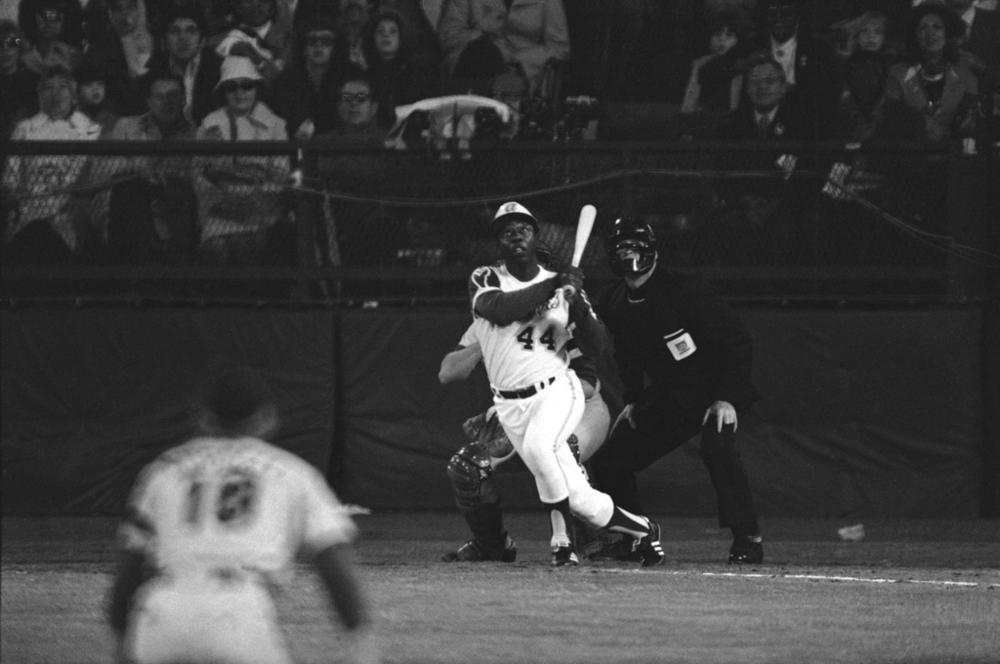
Caption
Atlanta Braves' Hank Aaron eyes the flight of the ball after hitting his 715th career homer in a game against the Los Angeles Dodgers in Atlanta, Ga., Monday night, April 8, 1974. Aaron broke Babe Ruth's record of 714 career home runs. Dodgers southpaw pitcher Al Downing, catcher Joe Ferguson and umpire David Davidson look on. Just in time for the 50-year anniversary of Hank Aaron's record 715th home run, Charlie Russo is making available video he shot of the homer.
Credit: AP Photo/Harry Harris, File






